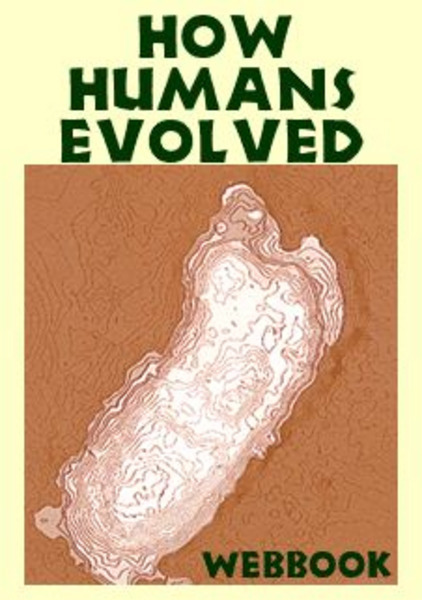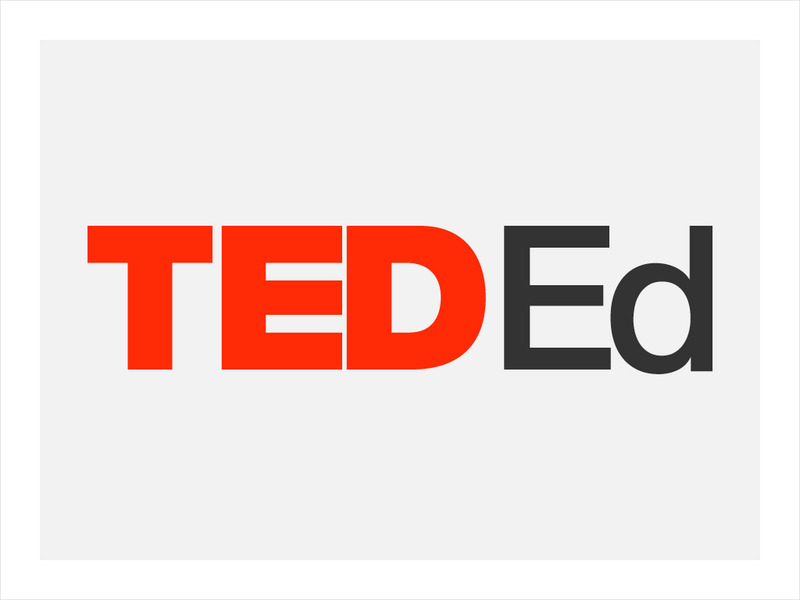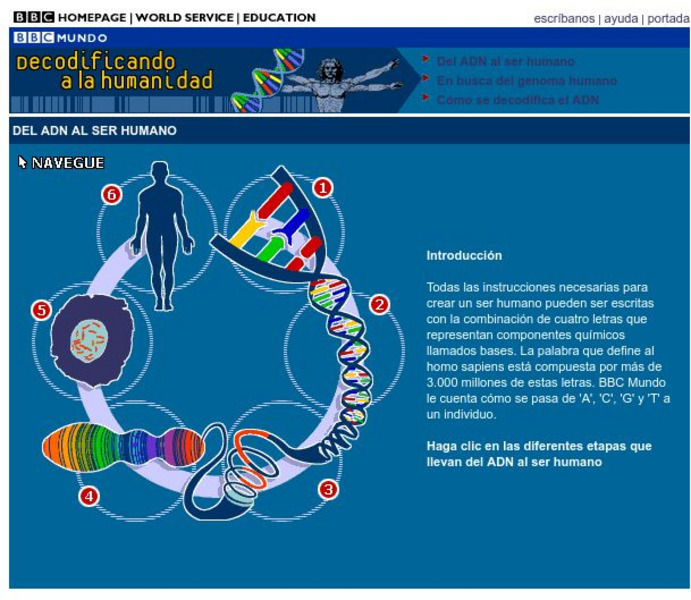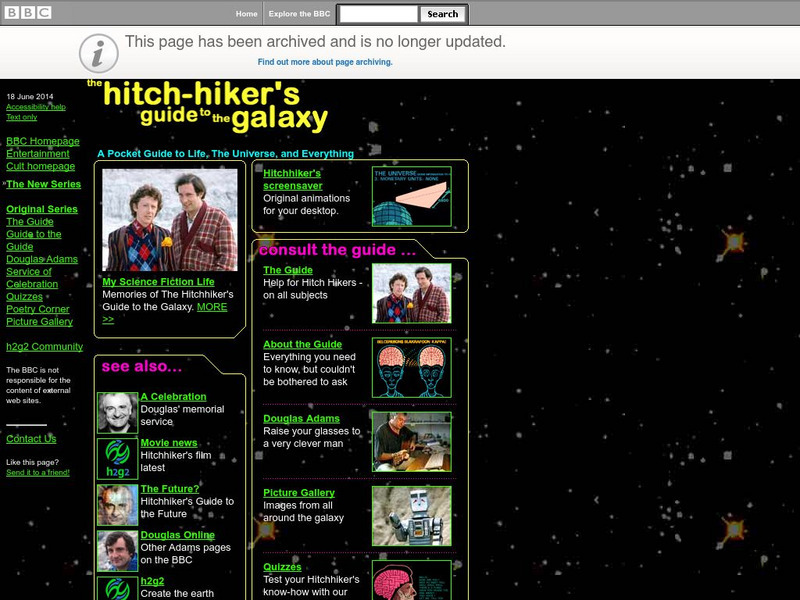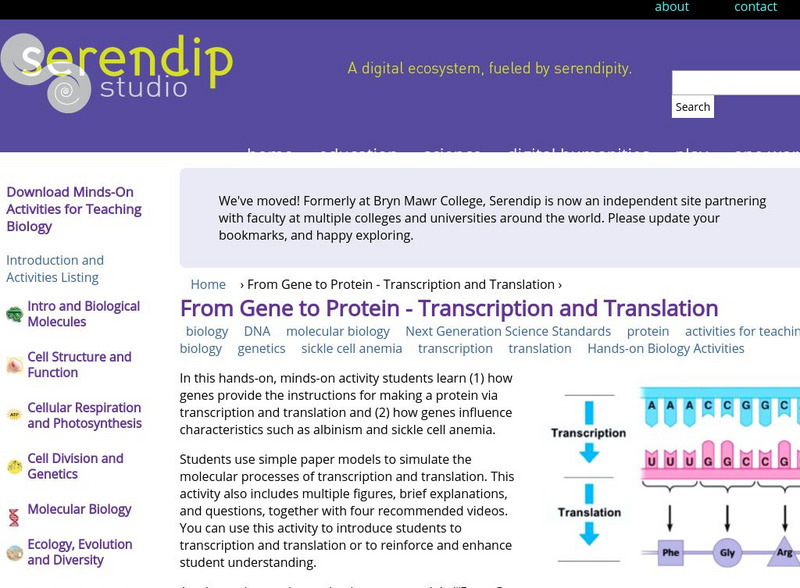Nobel Media AB
The Nobel Prize: Severo Ochoa Biographical
Read about the 1959 co-recipient of the Nobel Prize in Physiology -- Severo Ochoa -- who contributed to the "discovery of the mechanisms in the biological synthesis of ribonucleic acid and deoxyribobucleic acid."
National Institutes of Health
Ncbi: Human Genome Resources
This site covers information on all the human chromosomes, has interesting illustrations as well.
National Institutes of Health
National Center for Biotechnology Information: Education
This link has many tools to help understand the revolutionary sciences and discoveries in genetics.
W. W. Norton
W. W. Norton & Company: How Humans Evolved
This provides access to a webbook about How Humans Evolved. The following topics are covered: (1) How Evolution Works, (2) Primate Behavior and Ecology, (3) The History of Human Lineage, and (4) Evolution and Modern Humans. Each chapter...
TED Talks
Ted: Ted Ed: Dna: The Book of You
This video explains how DNA works and what it does, relating it to an instruction manual for building an organism. [4:29] Followed by a short quiz and a list of additional resources to explore.
Khan Academy
Khan Academy: Crick, Watson, and Franklin
This article describes the race to unlock the mystery of life by determining the double helix structure of the DNA molecule. The discovery of DNA and its structure is an example of collective learning.
Children's Museum
The Children's Museum of Indianapolis: Dna the Action of Extraction
Students extract DNA from wheat germ to learn about how DNA can easily be found in our food.
Children's Museum
The Children's Museum of Indianapolis: Dna the Ladder of Life
Students create a DNA model to illustrate how the four DNA bases are like a blueprint for each living thing.
Cold Spring Harbor Laboratory
Dna From the Beginning: Classical Genetics
This article from DNA from the beginning is loaded with goodies about genetics and DNA. Starting with Mendel all the way through the concept of DNA, you will see how life is given certain characteristics. Some animations and audio clips...
BBC
Bbc Mundo: Decodificando a La Humanidad Del Adn
Learn about DNA and decoding the human genome by clicking graphical DNA models. You can also review a timeline that shows important moments in human genetics research. In Spanish.
BBC
Bb Ci: The Hitchhiker's Guide to the Galaxy
Fun site containing information about the world created by the book. Also contains links to information on the author, Douglas Adams.
Bryn Mawr College
Serendip: From Gene to Protein Transcription and Translation
Brief text summary of what young scholars learn in the Dragon Genetics II lab along with links to download Student Handouts in PDF and Word formats, and Teacher Preparation Notes in PDF format. Students use paper models to learn...
City University of New York
Bio Lab Module: Breaking the Genetic Code
Try this interactive module from the Brooklyn College to help understand the genetic code and how changes in the code effect the final protein product.
City University of New York
The World of Cells: Nucleus
A good description of the structure and function of the nucleus.
Florida State University
Florida State University: Virus Structure
View a colorful 3-D diagrams of viruses and learn about how their structure helps them infect plants, animals, and bacteria.
Cold Spring Harbor Laboratory
Dna Interactive: Manipulation
Once the code was discovered, how could DNA be manipulated, what tools would be needed to make use of DNA. These are some questions answered in this interactive website.
Cold Spring Harbor Laboratory
Dna Interactive: Genome
This site is provided for by DNA Interactive. The genome is the entire endowment of genetic information. It is the "Book of life," on an organism. This site demonstrates the methods used to map and sequence the human genome and to...
Cold Spring Harbor Laboratory
Dna Interactive: Chronicles
By looking at the history of genetic engineering, this site hopes to show where eugenics has gone wrong and where we have an opportunity to make it right.
Biology Pages
Kimball's Biology Pages: Dna Replication
This page provides a fairly high level explanation of DNA replication with extensive graphics. Good description of this process.
Biology Pages
Kimball's Biology Pages: Mutations of Dna
This is a very informative site on DNA mutations. There is estensive information and helpful diagrams.
National Institutes of Health
Niehs: Kids' Pages: You and Your Genes
Online children's story that teaches about genes and how they direct how you react to things in your environment. Click on "next" at the bottom of the story to see how different people respond differently to harmful substances.
Cold Spring Harbor Laboratory
Dolan Dna Learning Center: Dna Molecule: How Dna Is Packaged Basic
See how our DNA is tightly packed up so that six feet of this long molecule fits into the microscopic nucleus of every cell. [1:30]
Cold Spring Harbor Laboratory
Dolan Dna Learning Center: Dna Molecule: How Much Dna Codes for Protein?
A quick overview of the human genome, and how much of our DNA contains genes and non-coding DNA. [1:02]
Cold Spring Harbor Laboratory
Dna Learning Center: Nobel Laureates in Dn Aft B
An animation showing the research of David Baltimore and Howard Temin that found the interaction between the genetic material of the cell and tumor viruses.




